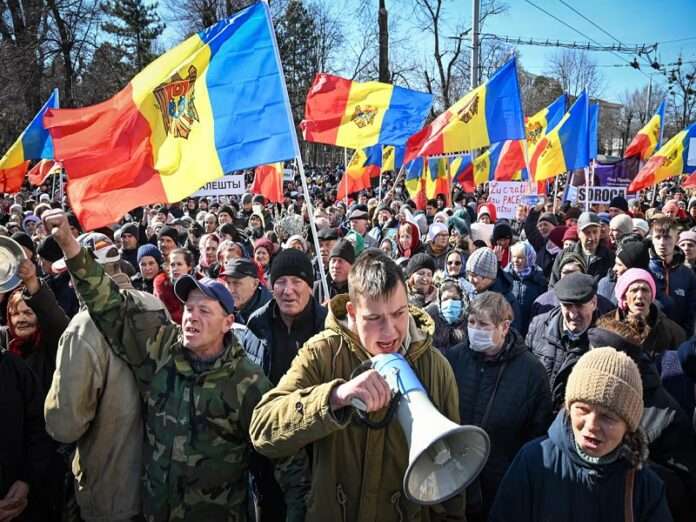President Putin’s address at the CIS Heads of State Council in Kyrgyzstan last week and subsequent Q&A session made headlines across the world because of the insight that he shared into the latest Israeli-Hamas war, particularly his support of Israel’s right to defend itself but also his criticism of its brutal methods. Many observers were so busy analyzing his balanced approach to this conflict and following its latest developments that they missed what he said about Moldova, which was actually quite important.
He actually brought that country up at the beginning of his address:
“As for Moldova, it is losing its identity, and its elite does not regard themselves as Moldovans. They say they are Romanians. It is their choice. This loss of the country’s identity is the choice of the current Moldovan leadership. But as I said, this is what they want, and nobody can stop them except the people of Moldova, provided there are people who regard themselves as Moldovans in that country. It is a choice for each of us: do we want to preserve our own identity or not?”
He also answered a question about it at the beginning of his Q&A session:
“Moldova is a special case. Its current political elite do not regard themselves as Moldovans. They say they are Romanians and have dual citizenship. It is their choice. There are many countries in the post-Soviet space that are closely connected to neighbouring countries beyond the CIS in terms of ethnicity or language. They value their identity and do everything in their power to preserve it. I am sure this is what will happen.”
Taken together, he warned that the Moldovan elite are erasing their country’s identity due to their dual loyalty to neighboring Romania, but he also predicted that their people will “do everything in their power to preserve it” and thus strongly implied the possibility of forthcoming anti-elite protests. This is actually very significant since Moldova is on the front lines of the New Cold War because of its geostrategic location between Romania and Ukraine as well as its unresolved conflict with Transnistria.
Russian Foreign Minister Lavrov earlier called the West out for its double standards towards Georgia and Moldova whereby it pushes for regime change in the former but is adamantly against it in the latter. Several months later at the start of summer, the US then sanctioned several Russians who were allegedly teaching Moldovans how to protest, which represented yet another double standard considering that the US has taught foreigners how to do so for decades.
These two moves indicated that the West is indeed aware of how unpopular Moldova’s anti-Russian elite is, hence why it’s sought to reinforce their dual-Romanian regime by giving it their full support while also discrediting all legitimate protests against it as supposedly being part of a so-called “Russian plot”. This is a very explosive situation that risks destabilizing the country in the event that large-scale protests, which are likely if Moldova’s identity continues being erased as expected, are brutally suppressed.
Not only that, but the regime might even try to distract some of the masses and generate even more Western support for their aforesaid brutal crackdown by launching an attack against Transnistria, which could also occur even in the absence of the abovementioned large-scale protests. Russia warned in February that Kiev was planning a false-flag provocation to justify its invasion of that separatist region, and while it ultimately got cold feet at the time, there’s no ruling out that it might return to these plans.
Zelensky is worried that the latest Israeli-Hamas war will lead to a curtailment of Western military aid for his regime, especially after intelligence chief Budanov and top advisor Podoliak both admitted that the multibillion-dollar counteroffensive failed exactly as US media previously assessed. He therefore has a self-interested reason to stir trouble in Transnistria, which could happen either independently of any large-scale anti-elite protests there or in parallel with them.
In any case, the point is that the counteroffensive’s failure and the West’s prioritization of Israel over Ukraine are actually a dangerous combination because of how desperate they’ve made Zelensky, who might now go ahead with a false-flag provocation in Transnistria as a last resort to stay relevant. The forthcoming protests that President Putin implied could soon be forthcoming might be exploited by the Kiev and Chisinau regimes in invade that region on the false pretext of “stopping Russian meddling”.
Observers should therefore keep an eye on this front of the New Cold War because any naturally occurring unrest there could create the opportunity for those two to stir trouble in Transnistria so as to ensure that the West doesn’t forget about them now that it’s standing in full solidarity with Israel. That’s not to say that they’ll definitely go through with these plans, but just that they’re back on the table and more pertinent than ever as was explained, so everyone would do well to continue monitoring Moldova.







